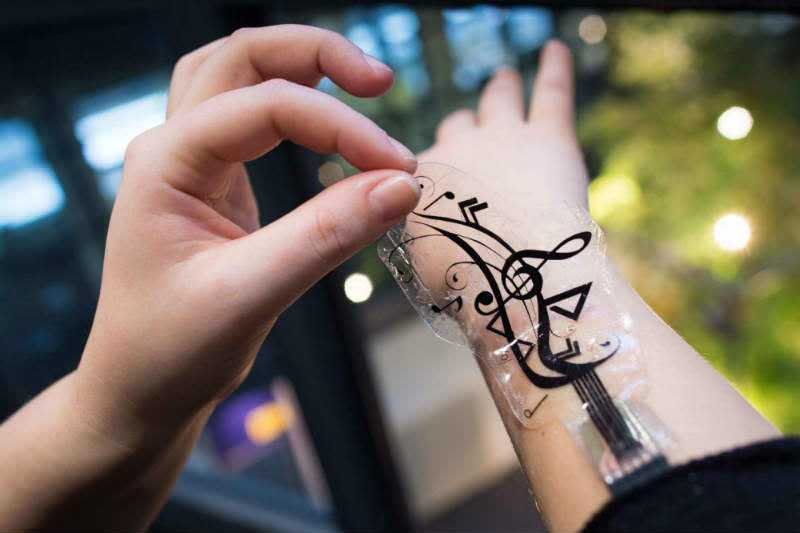 iSkin: A sensor worn on your skin, transforms the human body into a sensitive touch pad to control mobile devices.
iSkin: A sensor worn on your skin, transforms the human body into a sensitive touch pad to control mobile devices. 
Revolutionary technology has been developed by scientists in Germany.
ISkin is made of biocompatible silicone rubber with pressure sensors that can stick to the user's skin, allowing them to use their body to control mobile devices.
It was developed by scientists at Max Planck Institute for Informatics and Saarland University. The experimental system has been made in various shapes and sizes to fit various parts of the body, such as the finger, the forearm and even behind the ear.
The sensor is capable of detecting pressure, even when it is stretched or bent. With today's standards, scientists can answer incoming calls, play music, and adjust the volume. So far, a roll-up keyboard has also been designed for use with a smart clock.
The prototype is based on advances made in so-called "electronic skin" that allows robots to feel better their environment, contact, pressure and temperature.
ISkin manufacturers saw it as an ideal platform for interacting with mobile computing.
The material the "skin" is made of is called polydimethylsiloxane (PDMS), is silicone based and is an organic polymer.
“The sensor is made of bio-compatible silicone doped with silicon carbon. So there are carbon particles inside the silicone that make it conductive. So we can use it as an electronic device," explains Martin Weigel from team development.
The scientists have no immediate plans to develop the iSkin prototype further, but they hope it will inspire future research into an electronic skin that will enable human-to-human interaction.computer.





